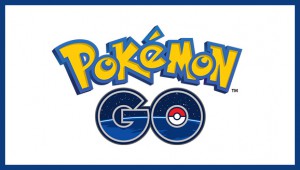By Cutright Elizabeth on July 15, 2016 in Technology
With over 7 million downloads and counting, Pokémon Go fever has gripped the nat ion, but what does this latest fad tells us about life in the modern age?
ion, but what does this latest fad tells us about life in the modern age?
It’s solving crimes, causing accidents and ruining relationships. It’s pushing couch potatoes onto city streets and careening across highways. Installed on 10% of all Android phones (15% internationally) and downloaded on more than 15 million iPhones and iPads, Pokémon Go now resides on more homescreens than Candy Crush, LinkedIn and Tinder.
There’s no denying the popularity and reach of Pokémon Go. Within 13 hours of launching, the app grabbed the No. 1 spot in iPhone app store. Even more astounding, Pokémon Go has already generated $14 million in revenue within its first week of existence, pushing Nintendo’s stock up 24%.
There’s no doubt Pokémon Go is a phenomenon. All that’s left is a deal with McDonalds (done), a cover on Rolling Stone and a skit on Saturday Night Live.
But what exactly is Pokémon GO, and how does the mania reflect the increasing influence of mobile technology and the millennial bottleneck on modern society?
Snapshot of Trend
Pokémon Go plays upon the legacy of Nintendo’s original Pokémon franchise, which debuted in the late 1990s as a game designed for the Nintendo Gameboy. The basic premise involves collecting various Pokémon creatures and pitting them against each other in battle. Pokémon eventually evolved into a several spin-off games, movies and even a television show.
While the original Pokémon restricted play to the gaming console, Pokémon Go users must now leave their house in order to play. The app uses an augmented reality via a gadget’s camera to combine gameplay with the real world, tracking user locations to reveal designated Pokéstops, Poké Balls and Pokémons ready for capture. Once a user advances to level 5 of the game, Pokémon battles are possible at designated gyms, where teams play against each other in a more traditional video game matchup. Winners gain points and garner other in-game benefits.
Privacy and Safety
Both Nintendo and the game’s developer have assured users that only basic information is being accessed when they log in through Google, but many users still fear playing the game makes them vulnerable to hacks or other cybercrimes. As a stopgap, users can also create a separate Pokémon account, though the company’s servers have been repeatedly forced to shut down as demand for the app increases exponentially both in the U.S. and internationally.
Safety concerns have also spilled out into the real world, with merry bands of zombified players heading out onto sidewalks and roads with their eyes firmly affixed upon their smartphone screens. Of course, it was only a matter of time before calamity struck. So far, Pokémon Go users have been robbed at knifepoint, crashed into trees and stumbled upon dead bodies. As the apps popularity grows, so will stories of mayhem.
True to human nature, while the app warns players to be aware of their surroundings, many Pokémon Go enthusiasts are so immersed they forget they’ve wandered beyond the safety of their front door. In response, police departments across the country have issues tips and alerts to help users play safely.
“Know your surroundings and pay attention to where you are going/who is around you,” San Francisco Police Capt., Raj Vaswani advises Pokémon Go players. “If you get the sense you are being followed or set up for a robbery, head to a lighted area with people around.”
Mirror to the Modern World
Fun, footloose and fancy-free, Pokémon Go reflects a larger societal shift and casts a light on life in the modern world. In this futurescape, augmented reality becomes a natural extension of day-to-day living. Unconstrained by consoles and indifferent to age, race, religion or any number of social constructs, Pokémon Go provides users with a safe, familiar portal with which to explore their environments and connect with other human beings in new and unique ways
Catching Pokémon live by stalking city streets and historic landmarks, players adeptly combine reality with virtuality. The apps popularity signals a sea change as college kids, Gen-Xers, Baby Boomers and even law enforcement come together for a common cause.
“[These] are dark times,” writes Forbes contributor Eric Kaine. “With all the rancor and division in this world…seeing people from all walks of life get up off their couches, leave their homes, and go out into the world to hunt for Pokémon is something truly remarkable.”
“This is a positive moment, a moment of real community and good feelings all thanks to a mobile game and some adorable Pokémon,” he concludes. “That’s pretty neat. Let’s treasure the moment.”


